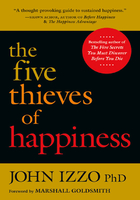To begin with the old rigmarole of childhood. In a country there was a shire, and in that shire there was a town, and in that town there was a house, and in that house there was a room, and in that room there was a bed, and in that bed there lay a little girl; wide awake and longing to get up, but not daring to do so for fear of the unseen power in the next room—a certain Betty, whose slumbers must not be disturbed until six o'clock struck, when she wakened of herself 'as sure as clockwork', and left the household very little peace afterwards. It was a June morning, and early as it was, the room was full of sunny warmth and light.
On the drawers opposite to the little white dimity bed in which Molly Gibson lay, was a primitive kind of bonnet-stand on which was hung a bonnet, carefully covered over from any chance of dust, with a large cotton handkerchief, of so heavy and serviceable a texture that if the thing underneath it had been a flimsy fabric of gauze and lace and flowers, it would have been altogether 'scromfished' (again to quote from Betty's vocabulary). But the bonnet was made of solid straw, and its only trimming was a plain white ribbon put over the crown, and forming the strings. Still, there was a neat little quilling inside, every plait of which Molly knew, for had she not made it herself the evening before, with infinite pains? and was there not a little blue bow in this quilling, the very first bit of such finery Molly had ever had the prospect of wearing?
Six o'clock now! the pleasant, brisk ringing of the church bells told that; calling every one to their daily work, as they had done for hundreds of years. Up jumped Molly, and ran with her bare little feet across the room, and lifted off the handkerchief and saw once again the bonnet; the pledge of the gay bright day to come. Then to the window, and after some tugging she opened the casement, and let in the sweet morning air. The dew was already off the flowers in the garden below, but still rising from the long hay-grass in the meadows directly beyond. At one side lay the little town of Hollingford, into a street of which Mr. Gibson's front door opened; and delicate columns, and little puffs of smoke were already beginning to rise from many a cottage chimney where some housewife was already up, and preparing breakfast for the bread-winner of the family.
Molly Gibson saw all this, but all she thought about it was, 'Oh! it will be a fine day! I was afraid it never, never would come; or that, if it ever came, it would be a rainy day!' Five-and-forty years ago, children's pleasures in a country town were very simple, and Molly had lived for twelve long years without the occurrence of any event so great as that which was now impending. Poor child! it is true that she had lost her mother, which was a jar to the whole tenour of her life; but that was hardly an event in the sense referred to; and besides, she had been too young to be conscious of it at the time. The pleasure she was looking forward to to-day was her first share in a kind of annual festival in Hollingford.
The little straggling town faded away into country on one side close to the entrance-lodge of a great park, where lived my Lord and Lady Cumnor 'the earl' and 'the countess', as they were always called by the inhabitants of the town; where a very pretty amount of feudal feeling still lingered, and showed itself in a number of simple ways, droll enough to look back upon, but serious matters of importance at the time. It was before the passing of the Reform Bill, but a good deal of liberal talk took place occasionally between two or three of the more enlightened freeholders living in Hollingford; and there was a great Tory family in the county who, from time to time, came forward and contested the election with the rival Whig family of Cumnor. One would have thought that the above-mentioned liberal-talking inhabitants would have, at least, admitted the possibility of their voting for the Hely- Harrison, and thus trying to vindicate their independence But no such thing. 'The earl' was lord of the manor, and owner of much of the land on which Hollingford was built; he and his household were fed, and doctored, and, to a certain measure, clothed by the good people of the town; their fathers' grandfathers had always voted for the eldest son of Cumnor Towers, and following in the ancestral track every man-jack in the place gave his vote to the liege lord, totally irrespective of such chimeras as political opinion.
This was no unusual instance of the influence of the great landowners over humbler neighbours in those days before railways, and it was well for a place where the powerful family, who thus overshadowed it, were of so respectable a character as the Cumnors. They expected to be submitted to, and obeyed; the simple worship of the townspeople was accepted by the earl and countess as a right; and they would have stood still in amazement, and with a horrid memory of the French sansculottes who were the bugbears of their youth, had any inhabitant of Hollingford ventured to set his will or opinions in opposition to those of the earl. But, yielded all that obeisance, they did a good deal for the town, and were generally condescending, and often thoughtful and kind in their treatment of their vassals. Lord Cumnor was a forbearing landlord; putting his steward a little on one side sometimes, and taking the reins into his own hands now and then, much to the annoyance of the agent, who was, in fact, too rich and independent to care greatly for preserving a post where his decisions might any day be overturned by my lord's taking a fancy to go 'pottering' (as the agent irreverently expressed it in the sanctuary of his own home), which, being interpreted, meant that occasionally the earl asked his own questions of his own tenants, and used his own eyes and ears in the management of the smaller details of his property. But his tenants liked my lord all the better for this habit of his. Lord Cumnor had certainly a little time for gossip, which he contrived to combine with the failing of personal intervention between the old land-steward and the tenantry. But, then, the countess made up by her unapproachable dignity for this weakness of the earl's. Once a year she was condescending. She and the ladies, her daughters, had set up a school; not a school after the manner of schools now-a-days, where far better intellectual teaching is given to the boys and girls of labourers and workpeople than often falls to the lot of their betters in worldly estate; but a school of the kind we should call 'industrial', where girls are taught to sew beautifully, to be capital housemaids, and pretty fair cooks, and, above all, to dress neatly in a kind of charity uniform devised by the ladies of Cumnor Towers;—white caps, white tippets, check aprons, blue gowns, and ready curtseys, and 'please, ma'ams', being de rigueur.
Now, as the countess was absent from the Towers for a considerable part of the year, she was glad to enlist the sympathy of the Hollingford ladies in this school, with a view to obtaining their aid as visitors during the many months that she and her daughters were away. And the various unoccupied gentlewomen of the town responded to the call of their liege lady, and gave her their service as required; and along with it, a great deal of whispered and fussy admiration. 'How good of the countess! So like the dear countess—always thinking of others!' and so on; while it was always supposed that no strangers had seen Hollingford properly, unless they had been taken to the countess's school, and been duly impressed by the neat little pupils, and the still neater needlework there to be inspected. In return, there was a day of honour set apart every summer, when with much gracious and stately hospitality, Lady Cumnor and her daughters received all the school visitors at the Towers, the great family mansion standing in aristocratic seclusion in the centre of the large park, of which one of the lodges was close to the little town. The order of this annual festivity was this. About ten o'clock one of the Towers' carriages rolled through the lodge, and drove to different houses, wherein dwelt a woman to be honoured; picking them up by ones or twos, till the loaded carriage drove back again through the ready portals, bowled along the smooth tree-shaded road, and deposited its covey of smartly- dressed ladies on the great flight of steps leading to the ponderous doors of Cumnor Towers. Back again to the town; another picking up of womankind in their best clothes, and another return, and so on till the whole party were assembled either in the house or in the really beautiful gardens. After the proper amount of exhibition on the one part, and admiration on the other, had been done, there was a collation for the visitors, and some more display and admiration of the treasures inside the house. Towards four o'clock, coffee was brought round; and this was a signal of the approaching carriage that was to take them back to their own homes; whither they returned with the happy consciousness of a well-spent day, but with some fatigue at the long- continued exertion of behaving their best, and talking on stilts for so many hours. Nor were Lady Cumnor and her daughters free from something of the same self-approbation, and something, too, of the same fatigue; the fatigue that always follows on conscious efforts to behave as will best please the society you are in.
For the first time in her life, Molly Gibson was to be included among the guests at the Towers. She was much too young to be a visitor at the school, so it was not on that account that she was to go; but it had so happened that one day when Lord Cumnor was on a 'pottering' expedition, he had met Mr. Gibson, the doctor of the neighbourhood, coming out of the farm-house my lord was entering; and having some small question to ask the surgeon (Lord Cumnor seldom passed any one of his acquaintance without asking a question of some sort—not always attending to the answer; it was his mode of conversation), he accompanied Mr. Gibson to the out-building, to a ring in the wall of which the surgeon's horse was fastened. Molly was there too, sitting square and quiet on her rough little pony, waiting for her father. Her grave eyes opened large and wide at the close neighbourhood and evident advance of 'the earl'; for to her little imagination the grey-haired, red-faced, somewhat clumsy man, was a cross between an archangel and a king.
'Your daughter, eh, Gibson?—nice little girl, how old? Pony wants grooming though,' patting it as he talked. 'What's your name, my dear? He's sadly behindhand with his rent, as I was saying, but if he's really ill, I must see after Sheepshanks, who is a hardish man of business. What's his complaint? You'll come to our school-scrimmage on Thursday, little girl—what's-your-name? Mind you send her, or bring her, Gibson; and just give a word to your groom, for I'm sure that pony wasn't singed last year, now, was he? Don't forget Thursday, little girl—what's your name?—it's a promise between us, is it not?' And off the earl trotted, attracted by the sight of the farmer's eldest son on the other side of the yard.
Mr. Gibson mounted, and he and Molly rode off. They did not speak for some time. Then she said, 'May I go, papa?' in rather an anxious little tone of voice.
'Where, my dear?' said he, wakening up out of his own professional thoughts.
'To the Towers—on Thursday, you know. That gentleman' (she was shy of calling him by his title) 'asked me.'
'Would you like it, my dear? It has always seemed to me rather a tiresome piece of gaiety—rather a tiring day, I mean—beginning so early—and the heat, and all that.'
'Oh, papa!' said Molly reproachfully.
'You'd like to go then, would you?'
'Yes if I may!—He asked me, you know. Don't you think I may?—he asked me twice over.'
'Well! we'll see—yes! I think we can manage it, if you wish it so much, Molly.'
Then they were silent again. By-and-by, Molly said:
'Please, papa—I do wish to go—but I don't care about it.'
'That's rather a puzzling speech. But I suppose you mean you don't care to go, if it will be any trouble to get you there. I can easily manage it, however, so you may consider it settled. You'll want a white frock, remember; you'd better tell Betty you're going, and she'll see after making you tidy.'
Now, there were two or three things to be done by Mr. Gibson, before he could feel quite comfortable about Molly's going to the festival at the Towers, and each of them involved a little trouble on his part. But he was very willing to gratify his little girl; so the next day he rode over to the Towers, ostensibly to visit some sick housemaid, but, in reality, to throw himself in my lady's way, and get her to ratify Lord Cumnor's invitation to Molly. He chose his time, with a little natural diplomacy; which, indeed, he had often to exercise in his intercourse with the great family. He rode into the stable-yard about twelve o'clock, a little before luncheon-time, and yet after the worry of opening the post-bag and discussing its contents was over. After he had put up his horse, he went in by the back-way to the house; the 'House' on this side, the 'Towers' at the front. He saw his patient, gave his directions to the housekeeper, and then went out, with a rare wild- flower in his hand, to find one of the ladies Tranmere in the garden, where, according to his hope and calculation, he came upon Lady Cumnor too—now talking to her daughter about the contents of an open letter which she held in her hand, now directing a gardener about certain bedding-out plants.
'I was calling to see Nanny, and I took the opportunity of bringing Lady Agnes the plant I was telling her about as growing on Cumnor Moss.'
'Thank you so much, Mr. Gibson. Mamma, look! this is the Drosera rotundifolia I have been wanting so long.'
'Ah! yes; very pretty I daresay, only I am no botanist. Nanny is better, I hope? We can't have any one laid up next week, for the house will be quite full of people—and here are the Danbys waiting to offer themselves as well. One comes down for a fortnight of quiet, at Whitsuntide, and leaves half one's establishment in town, and as soon as people know of our being here, we get letters without end, longing for a breath of country air, or saying how lovely the Towers must look in spring; and I must own, Lord Cumnor is a great deal to blame for it all, for as soon as ever we are down here, he rides about to all the neighbours, and invites them to come over and spend a few days.'
'We shall go back to town on Friday the 18th,' said Lady Agnes, in a consolatory tone.
'Ah, yes! as soon as we have got over the school visitors' affair. But it is a week to that happy day.'
'By the way!' said Mr. Gibson, availing himself of the good opening thus presented, 'I met my lord at the Cross-trees Farm yesterday, and he was kind enough to ask my little daughter, who was with me, to be one of the party here on Thursday; it would give the lassie great pleasure, I believe.' He paused for Lady Cumnor to speak.
'Oh, well! if my lord asked her, I suppose she must come, but I wish he was not so amazingly hospitable! Not but what the little girl will be quite welcome; only, you see, he met a younger Miss Browning the other day, of whose existence I had never heard.'
'She visits at the school, mamma,' said Lady Agnes.
'Well, perhaps she does; I never said she did not. I knew there was one visitor of the name of Browning; I never knew there were two, but, of course, as soon as Lord Cumnor heard there was another, he must needs ask her; so the carriage will have to go backwards and forwards four times now to fetch them all. So your daughter can come quite easily, Mr. Gibson, and I shall be very glad to see her for your sake. She can sit bodkin with the Brownings, I suppose? You'll arrange it all with them; and mind you get Nanny well up to her work next week.'
Just as Mr. Gibson was going away, Lady Cumnor called after him, 'Oh! by-the-bye, Clare is here; you remember Clare, don't you? She was a patient of yours, long ago.'
'Clare!' he repeated, in a bewildered tone.
'Don't you recollect her? Miss Clare, our old governess,' said Lady Agnes. 'About twelve or fourteen years ago, before Lady Cuxhaven was married.'
'Oh, yes!' said he. 'Miss Clare, who had the scarlet fever here; a very pretty delicate girl. But I thought she was married!'
'Yes!' said Lady Cumnor. 'She was a silly little thing, and did not know when she was well off; we were all very fond of her, I'm sure. She went and married a poor curate, and became a stupid Mrs. Kirkpatrick; but we always kept on calling her 'Clare.' And now he's dead, and left her a widow, and she is staying here; and we are racking our brains to find out some way of helping her to a livelihood without parting her from her child. She's somewhere about the grounds, if you like to renew your acquaintance with her.'
'Thank you, my lady. I'm afraid I cannot stop to-day. I have a long round to go; I've stayed here too long as it is, I'm afraid.'
Long as his ride had been that day, he called on the Miss Brownings in the evening, to arrange about Molly's accompanying them to the Towers. They were tall handsome women, past their first youth, and inclined to be extremely complaisant to the widowed doctor.
'Eh dear! Mr. Gibson, but we shall he delighted to have her with us. You should never have thought of asking us such a thing,' said Miss Browning the elder.
'I'm sure I'm hardly sleeping at nights for thinking of it,' said Miss Phoebe. 'You know I've never been there before. Sister has many a time; but somehow, though my name has been down on the visitors' list these three years, the countess has never named me in her note; and you know I could not push myself into notice, and go to such a grand place without being asked; how could I?'
'I told Phoebe last year,' said her sister, 'that I was sure it was only inadvertence, as one may call it, on the part of the countess, and that her ladyship would be as hurt as any one when she didn't see Phoebe among the school visitors; but Phoebe has got a delicate mind, you see Mr. Gibson, and for all I could say she wouldn't go, but stopped here at home; and it spoilt all my pleasure all that day, I do assure you, to think of Phoebe's face, as I saw it over the window- blinds, as I rode away; her eyes were full of tears, if you'll believe me.'
'I had a good cry alter you was gone, Sally,' said Miss Phoebe; 'but for all that, I think I was right in stopping away from where I was not asked. Don't you, Mr. Gibson?'
'Certainly,' said he. 'And you see you are going this year; and last year it rained.'
'Yes! I remember! I set myself to tidy my drawers, to string myself up, as it were; and I was so taken up with what I was about that I was quite startled when I heard the rain beating against the window-panes. 'Goodness me!' said I to myself, 'whatever will become of sister's white satin shoes, if she has to walk about on soppy grass after such rain as this?' for, you see, I thought a deal about her having a pair of smart shoes; and this year she has gone and got me a white satin pair just as smart as hers, for a surprise.'
'Molly will know she's to put on her best clothes,' said Miss Browning. 'We could perhaps lend her a few beads, or artificials, if she wants them.'
'Molly must go in a clean white frock,' said Mr. Gibson, rather hastily; for he did not admire the Miss Brownings' taste in dress, and was unwilling to have his child decked up according to their fancy; he esteemed his old servant Betty's as the more correct, because the more simple. Miss Browning had just a shade of annoyance in her tone as she drew herself up, and said, 'Oh! very well. It's quite right, I'm sure.' But Miss Phoebe said, 'Molly will look very nice in whatever she puts on, that's certain.'















